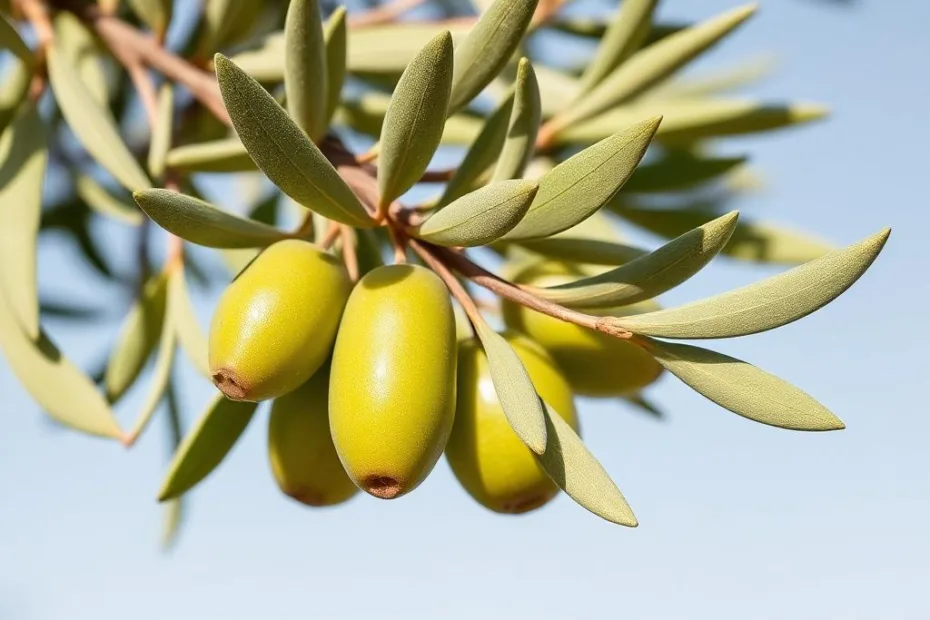Olive in Spanish: Aceituna
The olive, known as aceituna in Spanish, is an iconic fruit deeply rooted in the culinary and cultural traditions of Spanish-speaking countries. It has been cherished for centuries, serving as both a vital food source and a symbol of prosperity, peace, and vitality.
This article delves into the meaning of aceituna, its culinary uses, health benefits, historical significance, and cultural importance in Spanish-speaking regions.
The pronunciation of aceituna in Spanish is:
ah-say-TOO-nah
- “ah” as in “father”
- “say” with a soft “s,” like in “say”
- “TOO” emphasizing the second syllable
- “nah” with a short “a,” as in “banana”
It means “olive” in Spanish, commonly used in Spain and other Spanish-speaking countries.
1. Meaning of Aceituna
In Spanish, aceituna refers to the small, oval-shaped fruit of the olive tree (Olea europaea). It is a versatile fruit used to produce olive oil (aceite de oliva) or consumed as a table olive.
Other Terms for Olive
- Oliva: Also means olive, but it is more commonly used when referring to olive oil or the olive tree.
- Aceituna: Specifically refers to the fruit as a food item.
Example Sentences
- Las aceitunas verdes son mi aperitivo favorito.
(Green olives are my favorite snack.) - El aceite de oliva virgen extra se obtiene de aceitunas frescas.
(Extra virgin olive oil is made from fresh olives.)
2. Types of Olives (Aceitunas)
There are various types of olives, each with distinct flavors and uses:
Green Olives (Aceitunas Verdes)
- Harvested before ripening.
- Commonly used in appetizers, salads, and stuffings.
- Example: Aceitunas rellenas (stuffed olives).
Black Olives (Aceitunas Negras)
- Fully ripened on the tree or treated to darken their color.
- Mildly sweet and perfect for pizzas, pastas, and tapas.
Regional Varieties
- Manzanilla: A Spanish olive known for its firm texture and mild flavor.
- Arbequina: Small, flavorful olives often used to produce high-quality olive oil.
- Gordal: Large, meaty olives ideal for stuffing.
Example Sentences
- Las aceitunas son una excelente fuente de grasas saludables.
(Olives are an excellent source of healthy fats.) - Comer aceitunas regularmente puede ayudar a reducir el colesterol.
(Eating olives regularly can help lower cholesterol.)
5. Historical Significance of Olives
Olives have been cultivated for thousands of years and are deeply tied to Spanish history and culture.
Origins
The olive tree, or olivo, was introduced to Spain by the Phoenicians and later cultivated extensively by the Romans. Today, Spain is one of the world’s largest producers of olives and olive oil.
Symbolism
- Represents peace and prosperity.
- Olive branches are often used in art and ceremonies as a sign of goodwill.
Example Sentence
El olivo es un símbolo de la paz en muchas culturas.
(The olive tree is a symbol of peace in many cultures.)
6. Cultural Importance of Olives in Spanish-Speaking Countries
Spain
- The Andalusia region is famous for its vast olive groves and high-quality olive oil.
- Olives are a key ingredient in many traditional Spanish recipes.
Latin America
- In countries like Mexico and Peru, olives are used in dishes such as tamales and ají de gallina.
Festivals and Celebrations
- Olive harvest festivals celebrate the importance of this fruit in rural communities.
- Tastings and cooking demonstrations often showcase different types of olives and oils.
7. Fun Facts About Olives (Aceitunas)
- Spain Leads the World: Spain produces over 40% of the world’s olives.
- Ancient Trees: Some olive trees in Spain are over 1,000 years old.
- Olive Oil Grades: The best olive oil is labeled as virgen extra (extra virgin).
- Sacred Fruit: Olives have been mentioned in religious texts and mythology for their divine qualities.
- Used Beyond Food: Olives and olive oil are also used in skincare and traditional remedies.
8. Idiomatic Expressions with Olives (Aceitunas)
Spanish idioms often incorporate olives to convey unique ideas:
- “No hay aceituna sin hueso”: Every good thing comes with its challenges (literally, “There’s no olive without a pit”).
- Example: La vida es como una aceituna; no hay aceituna sin hueso. (Life is like an olive; every good thing has its challenges.)
- “Como aceituna en el Martini”: To feel out of place or extra.
- Example: Me sentí como aceituna en el Martini en esa reunión. (I felt out of place at that meeting.)
The olive, or aceituna, is more than just a fruit—it’s a cornerstone of Spanish-speaking culinary traditions and a symbol of peace and abundance. From the fertile groves of Andalusia to the vibrant dishes of Latin America, olives play a vital role in both culture and cuisine.
Whether you’re enjoying a handful of aceitunas aliñadas, spreading tapenade on bread, or savoring the richness of aceite de oliva, the humble olive continues to bring people together, just as it has for centuries.
Also read:
Additional Insights

Parallel Axis Theorem – Definition, Formula, Derivation & Applications

Axis of Symmetry: Definition, Equation, and Real-Life Applications

X and Y Axis: Definitions, Graphs and Examples
Coconut Spanish Translation

Cashew Spanish Translation
Axis Definition and Meaning

Walnut in Spanish Translation

Almond in Spanish – Translation and Meaning

